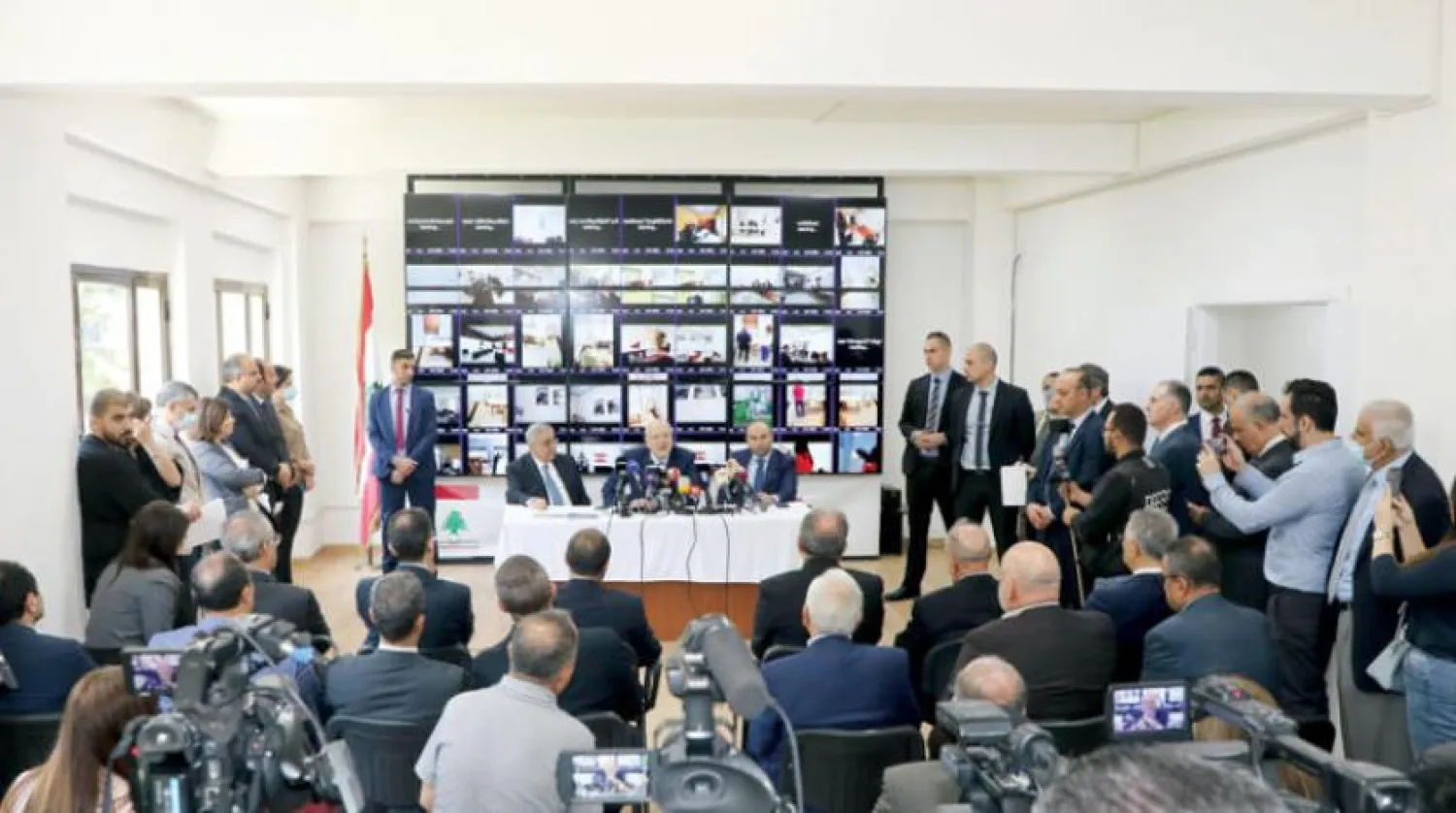The first phase of Lebanon’s parliamentary elections kicked off on Friday morning, for expats residing in Saudi Arabia, Qatar, Kuwait, Syria, Oman, Egypt, Bahrain, Jordan, Iraq and Iran.
The rest of the expatriates will vote in the second phase in 48 other countries on Sunday.
Prime Minister Najib Mikati inaugurated on Thursday the operations room for managing and monitoring parliamentary elections abroad, which was established by the Ministry of Foreign Affairs and Emigrants.
“It is a historic and important moment in the Ministry of Foreign Affairs… It’s a real bridge linking Lebanon with its expats,” he said on the occasion.
In Lebanon, the elections will take place on May 15. A total of 103 lists with 1,044 candidates are competing for the 128-seat legislature, which is equally divided between Christians and Muslims.
Mikati called on the Lebanese to participate massively in the polls, saying: “When we see that only 220,000 Lebanese expatriates have registered to vote, while they account for millions… we have wished the participation to be much greater.”
Foreign Minister Abdallah Bou Habib stressed that the ministry has exerted “all efforts to make the voting process a success” at home and abroad.
The parliamentary elections are the first since Lebanon’s economic meltdown began in late 2019. The government’s factions have done virtually nothing to address the collapse, leaving Lebanese to fend for themselves as they plunge into poverty, without electricity, medicine, garbage collection or any other semblance of normal life.
Financial difficulties and the collapse of the value of salaries of public sector employees have complicated the preparations for the elections. But according to Interior Minister Bassam Mawlawi, these difficulties were surmounted.
He stressed that his ministry “met all its duties so that the elections would be perfect.”
“We have completed all the logistical and security preparations through successive security meetings, the last of which was the meeting of the Central Internal Security Council. We also secured grants for the military forces participating in the elections,” the minister explained.
Mawlawi called on the Lebanese to be “reassured that the elections will be successful,” adding: “The government has pledged in its ministerial statement to hold the elections, and the Ministry of Interior has done everything necessary for this purpose.”









